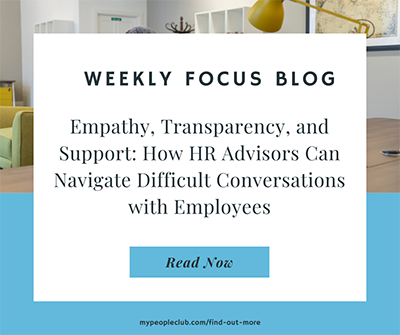How HR Can Navigate Difficult Conversations with Employees
As an HR pro, you know that having difficult conversations with employees is just part of the job. Whether it’s addressing performance issues or complaints of harassment, these conversations can be tough to navigate. They won’t always be easy, but you will develop strategies and techniques to help you them as your career develops, today I’m going to share some of things I learnt that help me to be better in communicating tricky conversations.
Firstly, it’s important to listen actively. Give the employee your undivided attention and demonstrate that you understand and care about their perspective. This can help you to create a safe space for the employee to express their concerns and feel heard.
As much as it’s human nature to do so, resist jumping to conclusions. In HR we get many conversations/ issues presented to us that appear to be the same and although, you may have had similar conversations in the past, it’s essential to approach each one with an open mind. Listen to the employee’s perspective and ask questions to get a better understanding of their point of view.
When having these conversations, try to use clear and concise language. Avoid using technical terms or jargon that the employee may not understand. Transparency is key – be honest about the situation and what steps will be taken to address it.
Another essential aspect of navigating difficult conversations is considering diverse perspectives. This means being aware of your own biases and seeking out different viewpoints. It’s also important to take into account the employee’s background, experiences, and culture.
Difficult conversations can often be emotionally charged and draining for employees, so it’s crucial to provide support and resources. Connect them with an employee assistance program or provide them with resources to address the issue at hand.
Finally, following up after a difficult conversation is essential. It shows the employee that you care and are committed to addressing the situation. It also provides an opportunity to check in and ensure that the issue has been resolved.
Overall, approaching each conversation with sensitivity and transparency, you can help employees feel heard and supported. Remember we have lots of resources on the platform that can help develop your communication skills to allow you to steer the conversations to successful outcome for all. Find out more here.


